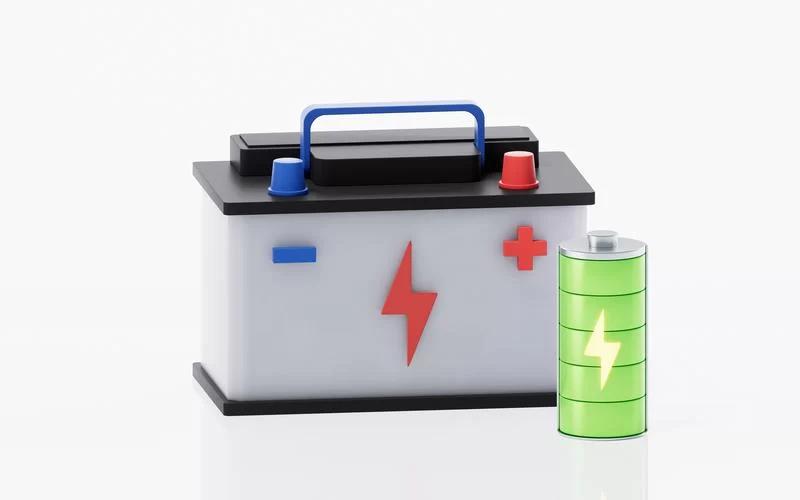Comparing Lithium-Ion and Lead-Acid Batteries in Solar Battery Solutions

When it comes to choosing the right solar battery solution, the two most common options are lithium-ion and lead-acid batteries. Both have their strengths and weaknesses, but the right choice largely depends on the user's needs, budget, and the specific requirements of the solar system. Below, we’ll compare the two technologies to help you make a more informed decision.

1. Energy Efficiency and Capacity
Lithium-ion batteries are known for their higher energy efficiency. They generally have an efficiency rate of about 95%, meaning most of the energy stored can be used. In comparison, lead-acid batteries usually have a lower efficiency of around 80-85%. This difference in efficiency means that for every unit of energy stored, lithium-ion systems will yield more usable power, making them more suitable for applications where energy optimization is critical.
Additionally, lithium-ion batteries have higher energy density, which means they can store more energy in a smaller volume compared to lead-acid batteries. This makes lithium-ion a better option for space-saving solar setups or installations where power requirements are high.
2. Cycle Life
One of the most significant advantages of lithium-ion batteries is their longer cycle life. These batteries can last up to 5000 cycles or more, depending on the specific model and use case. In contrast, lead-acid batteries typically have a cycle life of 500 to 1500 cycles. For users looking for a long-term solar storage solution, this makes lithium-ion the more cost-effective option in the long run, despite the higher upfront cost.
However, if you are only looking for a short-term solution or have limited budget constraints, lead-acid batteries could be a more viable option.
3. Depth of Discharge (DoD)
Depth of discharge (DoD) refers to how much of a battery’s capacity can be used before it needs recharging. Lithium-ion batteries typically have a DoD of 80-90%, which allows users to access more of the battery’s total capacity. Lead-acid batteries, on the other hand, should not be discharged below 50%, as doing so may reduce their lifespan.
This means that for similar-sized batteries, lithium-ion offers greater usable capacity, making it more efficient for daily solar energy usage.
4. Maintenance
Lead-acid batteries generally require more maintenance. They often need to be topped up with water and regularly checked to ensure optimal performance. In contrast, lithium-ion batteries are virtually maintenance-free, which adds to their appeal for residential and commercial solar energy systems where users may not want to deal with regular upkeep.
5. Cost Comparison
While lithium-ion batteries come with a higher initial cost, their longer lifespan, higher efficiency, and lower maintenance requirements often result in better long-term savings. Lead-acid batteries are more affordable upfront, which makes them attractive for users with limited budgets or short-term energy storage needs. However, when factoring in replacement costs and efficiency, lithium-ion generally proves to be the more cost-effective option over time.
6. Environmental Impact
In terms of environmental impact, lithium-ion is often seen as a more eco-friendly choice due to its longer lifespan, which reduces the frequency of disposal. Lead-acid batteries, due to their shorter cycle life and the hazardous nature of lead, require careful disposal and recycling. However, lead-acid batteries are widely recycled, which helps mitigate their environmental footprint to some extent.
Which is Right for You?
If you’re considering long-term investment and want a system with lower maintenance and higher efficiency, lithium-ion batteries are the superior choice. However, if your priority is upfront cost and you’re working within a tight budget, lead-acid batteries still offer a reliable solution for solar energy storage.
Questions to consider:
- Do you prioritize initial cost savings or long-term performance?
- How frequently will your solar battery be cycled?
FAQs
Which battery lasts longer, lithium-ion or lead-acid?
Lithium-ion batteries typically last much longer, with up to 5000 cycles, compared to lead-acid batteries, which have about 500-1500 cycles.
Are lithium-ion batteries worth the extra cost?
Yes, while lithium-ion batteries have a higher upfront cost, they offer longer lifespan, higher efficiency, and lower maintenance, making them more cost-effective over time.
What is the main advantage of lead-acid batteries for solar energy?
Lead-acid batteries are more affordable upfront, making them a good option for short-term projects or users on a tight budget.
